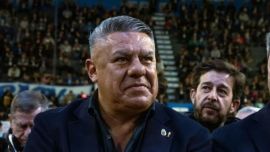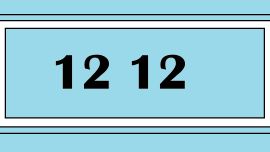French President Emmanuel Macron has dismissed the free-trade agreement negotiated between Mercosur and the European Union (EU) and proposed ditching it for a “new one.”
The remarks, delivered on the second day of the French leader’s visit to Brazil, are the clearest sign yet that the accord – which took some two decades to negotiate – is off the table.
The EU-Mercosur agreement “as is currently being negotiated is very bad for us and for you,” Macron said at an economic forum event in Säo Paulo.
The pact, talks over which began in 1999, would see the elimination of many tariffs between both areas, creating a commercial market of over 700 million consumers.
Yet the deal has yet to be ratified by parliaments on both sides of the Atlantic and has been heavily criticised by French farmers. There is also reluctance within the European Commission to sign off on it.
“That agreement has nothing taking into account biodiversity and climate. Nothing! That’s why I say it’s not good at all,” stressed Macron before an auditorium packed with Brazilian business people.
The French leader called for the construction of another agreement between the EU and Mercosur (Brazil, Argentina, Uruguay, Paraguay and Bolivia) that concentrates more on environmental issues.
“We’ve been negotiating with Mercosur for 20 years now. Let’s make a new agreement ... that is responsible from a point of view of development, climate and biodiversity,” insisted Macron.
After agreeing the terms of a deal in 2019, the opposition of several countries – including France – and the agricultural lobby in Europe has blocked its adoption.
Some influential European nations, such as Germany and Spain, advocate for its inclusion into law.
Brazilian President Luiz Inácio Lula da Silva is also enthusiastic about the free-trade agreement. Earlier this month, during a visit by Spanish Prime Minister Pedro Sánchez, he said was optimistic about closing it.
Submarine launch
Macron stopped in São Paulo, Brazi’s financial capital, after spending the morning with Lula near Rio de Janeiro to inaugurate a new Brazilian-French submarine. Both leaders talked up the strategic association between their two countries.
The conventionally powered “Tonelero” submarine, manufactured with the cooperation of France at the naval shipyard in Itaguaí, was christened with a bottle of sparkling wine by the Brazilian First Lady Rosangela da Silva, Janja.
Both Lula and Macron underlined the importance of that association in a world marked by wars and global disruption.
“It will help two major countries ... prepare for cohabitation with that diversity without worrying about any kind of war, because we’re defenders of peace,” Lula said.
The “Tonelero” is the third of four conventionally powered Scorpenes within Prosub, a US$7.2-billion programme to develop Brazilian submarines and their industry. The “Angostura,” the latest of these examples aimed at the protection of the 8,500 km of coast of the Latin American giant, should be launched into the sea in 2025.
Brazil's agreement with France, which dates all the way back to 2008, also includes a fifth submarine, which would be the first nuclear powered one in the South American nation's history.
“I want us to open a new chapter for new submarines … to look at nuclear power face to face while being perfectly respectful of all non-proliferation commitments,” said Macron.
“France will be with you,” the French leader declared to Lula.
Brasília wants to convince Paris to increase its transfer of technology to incorporate the reactor and for it to sell equipment linked with nuclear power (turbine, generator).
“If Brazil wants to access nuclear technology know-how, it’s not to wage war. We want it to ensure to all countries which want peace that Brazil will be by their side”, Lula stated.
On Tuesday, the first day of the visit, Macron and Lula announced a programme to raise €1 billion (US$1.08 billion) to invest in sustainable economy projects in the Brazilian and French-Guiana Amazon.
France is the third-largest investor in Brazil, with nearly US$38 billion engaged, according to data from the Brazilian government.
Macron will meet Lula once again in Brasilia on Thursday, on the last day of his official visit to the South American giant.
– TIMES/AFP




















Comments